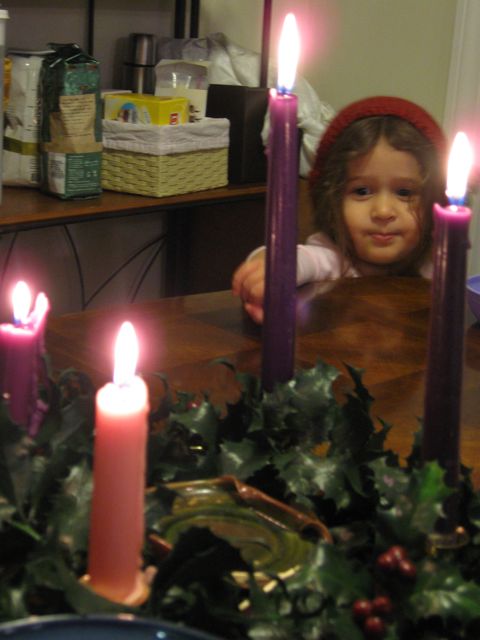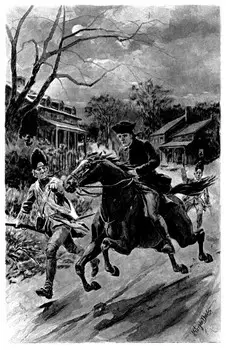
Come Lord Jesus, do not delay; give new courage to your people who trust in your love. By your coming, raise us to the joy of your kingdom, where you live and reign with the Father and the Holy Spirit, one God, for ever and ever. Amen.
(Collect for Dec. 24th, Roman Missal)
Lo, the hand of the LORD is not too short to save, nor his ear too dull to hear. Rather, it is your crimes that separate you from your God, It is your sins that make him hide his face so that he will not hear you. For your hands are stained with blood, your fingers with guilt; Your lips speak falsehood, and your tongue utters deceit.
No one brings suit justly, no one pleads truthfully; They trust in emptiness and tell lies; they conceive mischief and bring forth malice. They hatch adders' eggs, and weave spiders' webs: Whoever eats their eggs will die, if one of them is pressed, it will hatch as a viper; Their webs cannot serve as clothing, nor can they cover themselves with their works. Their works are evil works, and deeds of violence come from their hands. Their feet run to evil, and they are quick to shed innocent blood; Their thoughts are destructive thoughts, plunder and ruin are on their highways. The way of peace they know not, and there is nothing that is right in their paths; Their ways they have made crooked, whoever treads them knows no peace.
That is why right is far from us and justice does not reach us. We look for light, and lo, darkness; for brightness, but we walk in gloom! Like blind men we grope along the wall, like people without eyes we feel our way. We stumble at midday as at dusk, in Stygian darkness, like the dead. We all growl like bears, like doves we moan without ceasing. We look for right, but it is not there; for salvation, and it is far from us. For our offenses before you are many, our sins bear witness against us. Yes, our offenses are present to us, and our crimes we know:
Transgressing, and denying the LORD, turning back from following our God, Threatening outrage, and apostasy, uttering words of falsehood the heart has conceived. Right is repelled, and justice stands far off; For truth stumbles in the public square, uprightness cannot enter. Honesty is lacking, and the man who turns from evil is despoiled. The LORD saw this, and was aggrieved that right did not exist.
He saw that there was no one, and was appalled that there was none to intervene; So his own arm brought about the victory, and his justice lent him its support. He put on justice as his breastplate, salvation, as the helmet on his head; He clothed himself with garments of vengeance, wrapped himself in a mantle of zeal. He repays his enemies their deserts, and requites his foes with wrath.
Those in the west shall fear the name of the LORD, and those in the east, his glory; For it shall come like a pent-up river which the breath of the LORD drives on. He shall come to Zion a redeemer to those of Jacob who turn from sin, says the LORD. This is the covenant with them which I myself have made, says the LORD: My spirit which is upon you and my words that I have put into your mouth Shall never leave your mouth, nor the mouths of your children Nor the mouths of your children's children from now on and forever, says the LORD.
Rise up in splendor! Your light has come, the glory of the Lord shines upon you. See, darkness covers the earth, and thick clouds cover the peoples; But upon you the LORD shines, and over you appears his glory. Nations shall walk by your light, and kings by your shining radiance.
Raise your eyes and look about; they all gather and come to you: Your sons come from afar, and your daughters in the arms of their nurses. Then you shall be radiant at what you see, your heart shall throb and overflow, For the riches of the sea shall be emptied out before you, the wealth of nations shall be brought to you. No longer shall violence be heard of in your land, or plunder and ruin within your boundaries. You shall call your walls "Salvation" and your gates "Praise." No longer shall the sun be your light by day, Nor the brightness of the moon shine upon you at night; The LORD shall be your light forever, your God shall be your glory. No longer shall your sun go down, or your moon withdraw, For the LORD will be your light forever, and the days of your mourning shall be at an end.
Your people shall all be just, they shall always possess the land, They, the bud of my planting, my handiwork to show my glory. The smallest shall become a thousand, the youngest, a mighty nation; I, the LORD, will swiftly accomplish these things when their time comes.
The book of the genealogy of Jesus Christ, the son of David, the son of Abraham.
(Abraham was) the son of Terah, the son of Nahor, the son of Serug, the son of Reu, the son of Peleg, the son of Eber, the son of Shelah, the son of Ca-inan, the son of Arphaxad, the son of Shem, the son of Noah, the son of Lamech, the son of Methuselah, the son of Enoch, the son of Jared, the son of Mahalale-el, the son of Ca-inan, the son of Enos, the son of Seth, the son of Adam, the son of God.
Abraham was the father of Isaac, and Isaac the father of Jacob, and Jacob the father of Judah and his brothers,
and Judah the father of Perez and Zerah by Tamar, and Perez the father of Hezron, and Hezron the father of Ram, and Ram the father of Amminadab, and Amminadab the father of Nahshon, and Nahshon the father of Salmon, and Salmon the father of Boaz by Rahab, and Boaz the father of Obed by Ruth, and Obed the father of Jesse,
and Jesse the father of David the king. And David was the father of Solomon by the wife of Uriah, and Solomon the father of Rehoboam, and Rehoboam the father of Abijah, and Abijah the father of Asa, and Asa the father of Jehoshaphat, and Jehoshaphat the father of Joram, and Joram the father of Uzziah, and Uzziah the father of Jotham, and Jotham the father of Ahaz, and Ahaz the father of Hezekiah, and Hezekiah the father of Manasseh, and Manasseh the father of Amos, and Amos the father of Josiah, and Josiah the father of Jechoniah and his brothers, at the time of the deportation to Babylon.
And after the deportation to Babylon: Jechoniah was the father of She-alti-el, and She-alti-el the father of Zerubbabel, and Zerubbabel the father of Abiud, and Abiud the father of Eliakim, and Eliakim the father of Azor, and Azor the father of Zadok, and Zadok the father of Achim, and Achim the father of Eliud, and Eliud the father of Eleazar, and Eleazar the father of Matthan, and Matthan the father of Jacob, and Jacob the father of Joseph the husband of Mary, of whom Jesus was born, who is called Christ.
So all the generations from Abraham to David were fourteen generations, and from David to the deportation to Babylon fourteen generations, and from the deportation to Babylon to the Christ fourteen generations. (Isaiah 59:1-21, 60:1-5, 18-22; Matt 1:1; Luke 3:34b-38; Matt 1:2-17)












